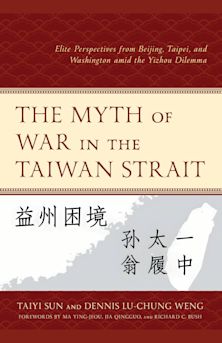Civilizations and World Order
Geopolitics and Cultural Difference
Civilizations and World Order
Geopolitics and Cultural Difference
Description
Civilizations and World Order: Geopolitics and Cultural Difference examines the role of civilizations in the context of the existing and possible world order(s) from a cross-cultural and inter-disciplinary perspective. Contributions seek to clarify the meaning of such complex and contested notions as “civilization,” “order,” and “world order”; they do so by taking into account political, economic, cultural, and philosophical dimensions of social life. The book deals with its main theme from three angles or vectors: first, the geopolitical or power-political context of civilizations; secondly, the different roles of civilizations or cultures against the backdrop of “post-coloniality” and “Orientalism”; and thirdly, the importance of ideological and regional differences as factors supporting or obstructing world order(s). All in all, the different contributions demonstrate the impact of competing civilizational trajectories on the functioning or malfunctioning of contemporary world order.
Table of Contents
Ahmet Davutoglu
Introduction
Fred Dallmayr, M. Akif Kayapinar and Ismail Yaylaci
Part I: Geopolitics and World Order
1. Geopolitical Turmoil and Civilizational Pluralism
Richard Falk
2. Civilization as Instrument of World Order? The Role of the Civilizational Paradigm in the Absence of a Balance of Power
Hans Köchler
3. Power in the Analysis of World Orders
Raymond Duvall and Çigdem Çidam
4. International Society, Cultural Diversity, and the Clash (or Dialogue) of Civilizations
Chris Brown
Part II: Eurocentrism and Cultural Difference
5.The Formative Parameters of Civilizations: A Theoretical and Historical Framework
Ahmet Davutoglu
6.Western Democrats, Oriental Despots?
S. Sayyid
7.The Ottoman Empire and the Global Muslim Identity in the Formation of Eurocentric World Order, 1815-1919
Cemil Aydin
8.Beyond the “Enlightenment Mentality”: An Anthropocosmic Perspective
Tu Weiming
Part III: Liberalism, Global and Regional Orders
9.Globalization, Civilizations, and World Order
Robert Gilpin
10.Liberalism of Restraint and Liberalism of Imposition: Liberal Values and World Order in the New Millennium
Georg Sørensen
11.The Rise of a Neo-medieval Order in Europe
Jan Zielonka
12.Illusions, Dreams and Nightmares: Japan, the United States, and the East Asian Renaissance in the First Decade of the New Century
John Welfield
Product details
| Published | 24 Sep 2014 |
|---|---|
| Format | Ebook (Epub & Mobi) |
| Edition | 1st |
| Extent | 274 |
| ISBN | 9780739186077 |
| Imprint | Lexington Books |
| Illustrations | 1 table |
| Series | Global Encounters: Studies in Comparative Political Theory |
| Publisher | Bloomsbury Publishing |



































